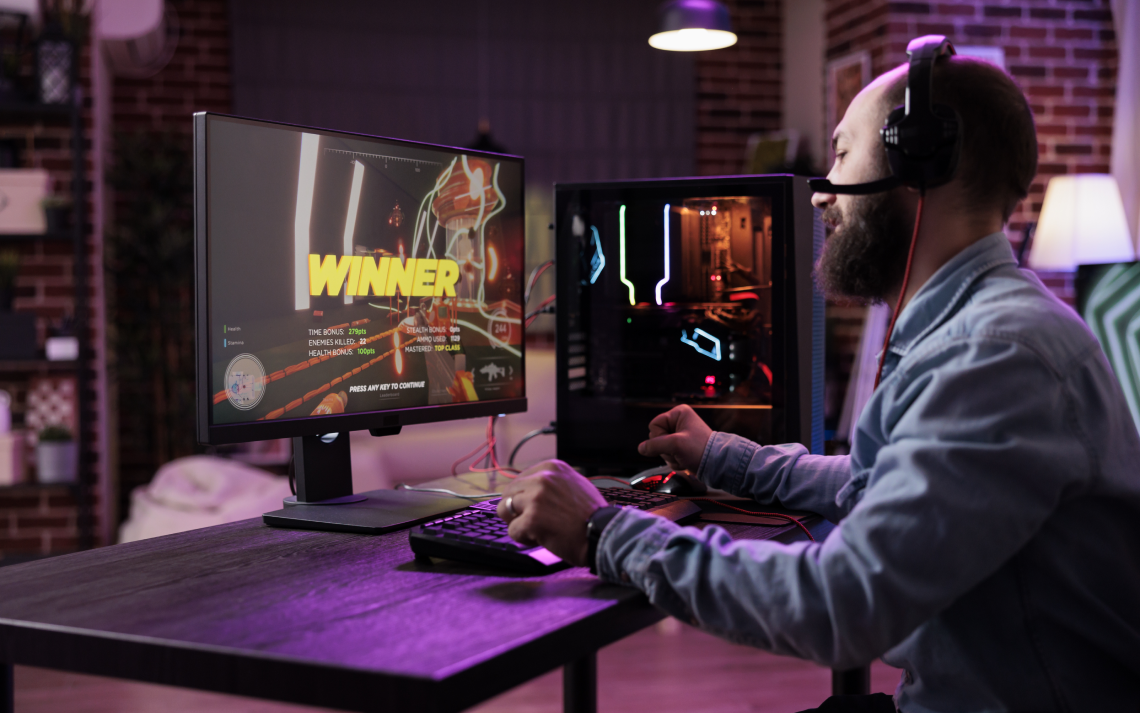From the coin-operated arcade machines of the past to the high-powered smartphones of today, the gaming world has undergone a remarkable transformation. This article will take you on a journey through the evolution of gaming platforms, exploring how they have changed and adapted over the years, from their arcade origins to the current era of mobile gaming.
The Golden Age of Arcades
During the 70s and 80s, arcades were the epicenter of the gaming world. These years were known as the golden age of gaming, with iconic games like Pac-Man and Space Invaders earning fans across the globe. The technology back then was impressive, introducing color graphics and enhancing the gaming experience. But arcades were more than just gaming hubs; they were social hotspots where friends gathered, new friendships formed, and everyone simply enjoyed being together. The real magic lay in the shared laughter and the thrill of trying to topple the high score.
The Rise of Home Gaming Consoles
Gaming underwent a significant shift in the 80s with the introduction of home consoles, transforming arcade thrills into a living room phenomenon. This period saw the launch of groundbreaking consoles like the Nintendo Entertainment System and Sega Genesis, redefining our gaming interactions.
These consoles did more than just bring games home; they revolutionized them with superior graphics, deeper gameplay, and intricate storytelling. This transition deeply influenced gaming culture, turning it into a communal household activity and laying the groundwork for today’s immersive gaming universes. In every sense, it was a true game-changer.
The Emergence of Online Gaming
The emergence of online gaming in the late 90s and early 2000s marked a new era in the gaming world. The introduction of internet connectivity in gaming consoles and PCs opened up unprecedented possibilities. Players were no longer confined to playing alone or with friends in the same room; they could now connect with a global community.
Early online gaming communities formed around games, creating social spaces that transcended physical boundaries. Massively multiplayer online games (MMOs) like ‘World of Warcraft’ and mobile games like Pokémon Go becoming a cultural phenomenon, shaping the landscape of online gaming. They offered vast, persistent worlds where players could interact, collaborate, and compete, forever changing how games were played and experienced.
Online Poker: A Case Study in Digital Transformation
With its rich history, Poker has undergone a dramatic makeover in the digital age. It began as a classic card game, often played in casinos or cozy home gatherings. But when it leaped into the digital realm, everything changed — the way it was played, who played it, and how easily it could be accessed. This transformation was driven by the rise of the internet and tech advancements, shifting poker from the felt tables to online platforms. Instead of planning game nights with friends or trips to Vegas, today, people debate which devices are best for online poker: tablets, smartphones, or computers.
This move to the digital world has had a huge impact on poker and the wider gaming industry. Online platforms have spiced up the game with new formats and styles, drawing in players from all walks of life and making poker more accessible than ever. This explosion in popularity has pushed poker into the spotlight of both competitive gaming and leisurely entertainment, highlighting its flexibility and timeless charm. The journey of poker from a traditional pastime to a digital sensation mirrors a larger movement in gaming, where age-old games are being refreshed and reinvented for today’s digital world.
The Future of Gaming Platforms
Gaming’s future is at an exciting juncture, with cutting-edge technologies like Virtual Reality (VR), Augmented Reality (AR), and cloud gaming ready to transform how we play. VR and AR are set to plunge players into incredibly realistic and interactive environments, while cloud gaming hints at a future where top-tier games are effortlessly streamable anywhere, on any device.
Gaming is increasingly intertwining with our daily lives, becoming more accessible and a routine part of our day. The upcoming shift could make gaming platforms even more seamless and tailored, potentially blurring the boundaries between our reality and virtual worlds in ways we’re only starting to explore.

